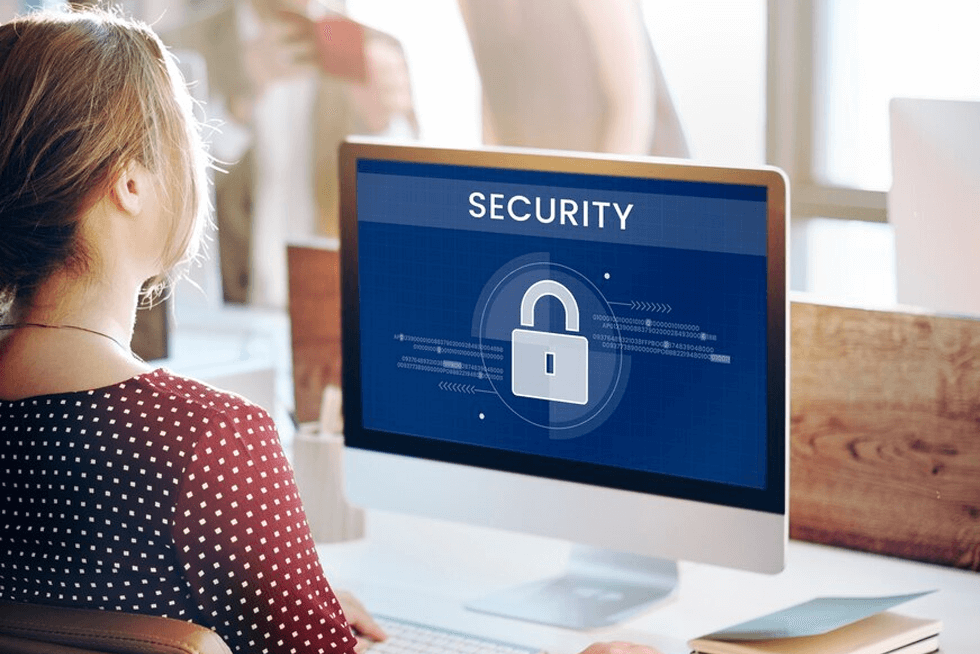In this era, the importance of cybersecurity cannot be overstated. As technology advances so do the methods employed by individuals seeking to breach systems and pilfer information. In this struggle, between those defending against attacks and those perpetrating them artificial intelligence (AI) has emerged as a truly transformative resource. By analyzing amounts of information and detecting patterns that humans might miss, AI is transforming the field of cybersecurity. However, along with its benefits AI also poses its unique obstacles. In this blog post, we will delve into the role of intelligence in cybersecurity exploring both its advantages and challenges.
- Use Secure Networks and Devices: When you’re working remotely, it’s important to depend on networks like your home Wi-Fi or a Virtual Private Network (VPN). Wi-Fi networks available in cafes, airports or other public places are generally less secure. Can potentially jeopardize your data. Additionally, ensure that the devices you use for work, such as laptops and smartphones have all the required security updates and antivirus software installed.
- Implement Strong Password Practices: Using strong, unique passwords for each of your accounts is a fundamental yet effective way to enhance cybersecurity. Consider using a password manager to generate and store complex passwords securely. Enable multi-factor authentication (MFA) wherever possible to add an extra layer of protection.
- Secure Your Home Network: Your Wi-Fi network at home serves as the entry point for all your activities. To enhance its security, it is recommended to modify the default login credentials of your router, employ WPA3 encryption for your network and conceal the SSID to reduce its visibility to attackers. Regularly update your router’s firmware to patch any vulnerabilities.
- Be Cautious of Phishing Attacks: Phishing attacks remain one of the most common and effective cyber threats. Be wary of unsolicited emails, links, or attachments, especially if they request personal information or prompt you to take urgent actions. Always verify the sender’s email address and avoid clicking on suspicious links.
- Use Encrypted Communication Tools: When you’re communicating with your colleagues, clients or collaborators, it’s an idea to use encrypted communication tools like messaging apps and video conferencing platforms that have end-to-end encryption. This way, you can make sure that your conversations and data stay private and secure.
- Secure Your Physical Workspace: Maintain a secure physical workspace at home. Lock your computer when not in use, and if possible, avoid leaving sensitive documents or notes in plain sight. A locked drawer or cabinet can provide an added layer of security for physical documents.
- Regularly Back Up Your Data: There are reasons why data loss can happen, such as cyberattacks, hardware malfunctions or accidents. It’s important to create backups of your work related data on a secure cloud storage platform or an external hard drive. This way you’ll be able to retrieve your files if any unexpected incidents occur.
- Update Software and Applications: It is crucial to update your operating system, software and applications. These updates often come with security patches that fix known vulnerabilities thereby minimizing the chances of being targeted by cybercriminals.
- Educate Yourself and Your Team: Stay informed about the latest cybersecurity threats and trends. Provide training sessions or resources to educate your remote team about cybersecurity best practices. Awareness is a key defense against cyber threats.
- Establish a Remote Work Security Policy: If you are part of a larger organization, consider establishing a comprehensive remote work security policy. This policy should outline guidelines, procedures, and expectations related to cybersecurity while working remotely.
While remote work offers unparalleled flexibility and convenience, it also comes with its share of cybersecurity challenges. By following these best practices, you can significantly enhance your online security, protect sensitive information, and contribute to a safer digital work environment. As the landscape of work continues to evolve, adapting and prioritizing cybersecurity remains an ongoing effort that ensures your remote work experience is both productive and secure.
